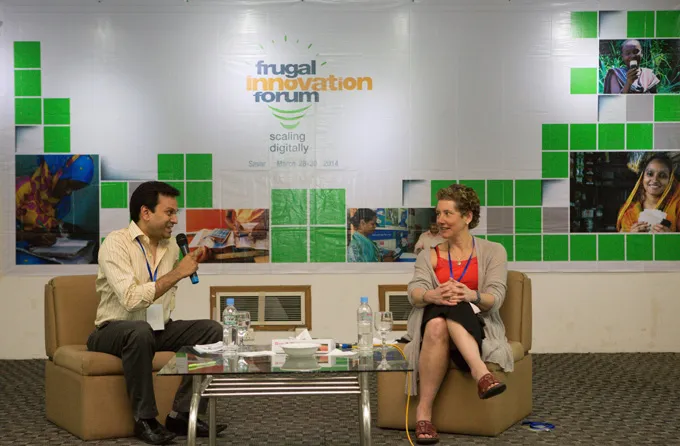How Gates Foundation is helping mobile money payment in developing countries

Most poor people around the world are unbanked, but that doesn’t mean they don’t have any financial needs. The only difference is it needs a different approach to solve their problem.
One of the best ways to help them is through mobile payment, which was an important topic of discussion at BRAC Frugal Innovation Forum held recently in Dhaka, Bangladesh.
We spoke with Liz Kellison from the team of ‘financial services for the poor’ at the Gates Foundation.
Here’s the edited excerpt from an interesting conversation.
SS: What are the biggest examples of mobile payment companies in the world?
LK: Certainly M-Pesa was the first and the largest mobile payment company in Kenya with a user base of 19 million. A very close second that is growing very rapidly is B-Kash in Bangladesh, which is connected to BRAC bank and is looking to really catch on here in Bangladesh. Bangladesh is a country of 154 million people in an area with the size of Wisconsin, and it has an incredible mobile coverage throughout the country. Something like 99%. So it’s the perfect place for a mobile money solution like B-Kash.
SS: How can mobile payment impact lives of poor around the world?
LK: Most poor live very far from a big city because they work in rural areas. Earlier, they would have to make long trips to receive the money owed to them which would not only waste time but was also unsafe. Once M-Pesa launched in Kenya it was amazing how quickly the service proliferated and grew in Kenya. They didn’t have to make the eight hour bus journey to Nairobi. They could send or receive money through one of the millions of agents throughout Kenya.
We at the Gates Foundation are really trying to support other mobile money operations in eight different countries that have equally large world population who are often at a great distance from their family, so it can really help convenience wise.
SS: What are the next developments in digital financial services?
LK: One of the exciting developments in digital financial services is that most people know about mobile money, but what is also happening is the possibility to have other kind of digital financial products delivered over mobile. So you can deliver micro-insurance, micro-loans, micro-credit and micro-savings through mobile phones as well. I think that where we are leading to is really being able to do all of your banking by phone, which is again terrific for helping the poor access digital financial services, and manage their money just as we do in the rich world.
SS: How is the Gates Foundation helping the development of financial services for the poor?
LK: The financial service for the poor team is working in eight countries around the world to bring digital financial services for the poor. We believe that the solution has to be digital in order to be low cost and widely accessible. We are working in multiple countries: India, Pakistan, Bangladesh, Indonesia, Kenya, Nigeria, Tanzania and Uganda.
SS: What’s the role of conferences like BRAC Frugal Innovation Forum in this sector?
LK: It’s really exciting to be at the Frugal Innovation Forum here in Dhaka, Bangladesh, mostly because it is a terrific time to be talking about mobile money in Bangladesh, especially when an organisation like BRAC is helping lead the way bringing new and interesting services to the poor. In that respect, the organisation they have launched, B-Kash, has really done an incredible job starting off last year and a half. It is growing like wildfire bringing new and innovative way for the poor to access digital financial services in Bangladesh.
SS: What does financial inclusion mean to you?
LK: Financial inclusion services for the poor means allowing the poor to do the same things rich people do. It means having them make money, save money and move money just the way we do, and just as easily as we can. The poor have financial needs, but it is more costly for them to operate with cash, to get their money in the bank. So digital financial services and financial inclusion can really help to smooth out their financial lives and move them out of poverty.
This article is part of a series of interviews that were taken at the 2014 BRAC Frugal Innovation Forum: Scaling Digitally. Please visit here to find other article in the series.







